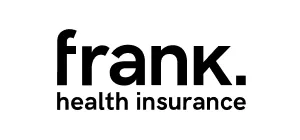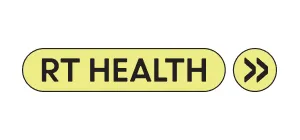What is singles health insurance?
Health insurance for singles is a policy that covers only one person. Unlike a couples, single parent or family policy (where all people have the same cover), a singles policy can be chosen based on one person’s specific needs. Even couples may want to consider taking out two separate singles health insurance policies, each one tailored to each person’s requirements.
What are the different types of singles health insurance policies?
There are three different types of health insurance in Australia:
- Hospital cover: Allows you to be treated as a private patient in a private or public hospital. Hospital cover is offered in four main ‘tiers’: Gold, Silver, Bronze and Basic.
- Extras cover: Helps cover the cost of other health services such as dental, physiotherapy and optical.
- Combined hospital and extras cover: Includes both hospital and extras cover in the one policy.
How much does singles health insurance cost in Australia?
The cost of your singles health insurance will depend on your individual circumstances and policy needs, based on factors such as:
- Your age (generally affects hospital cover more than extras cover)
- Where you live
- The health insurance fund/provider
- The hospital cover tier level (e.g. Gold, Silver, Bronze or Basic)
- The extras covers (instead of tier level, this will depend on the policy and provider chosen)
- The health insurance excess amount
Who offers the best singles health insurance cover in Australia?
It’s important to consider your personal needs when comparing policies in search of the best health insurance for singles. As well as thinking about your life stage, you might also want to consider questions such as:
- What level of hospital cover do you want (e.g. Gold, Silver, Bronze or Basic)?
- Do you want extras cover? And what services do you want cover for?
- Do you have any pre-existing conditions insurers need to be aware of?
- What’s your budget for premiums and any excess you choose?
Although costs are important, it’s also essential to consider whether a policy offers you enough cover. Cheaper policies might be tempting, but their cover can be less extensive and more exclusions and restrictions may apply. When comparing health policies, it’s worth checking whether any restrictions apply to coverage and reading the terms and conditions carefully before committing to a policy.
One quick and simple way to compare health insurance for singles is to look at the Canstar Health Insurance Award winners. Carefully selected from our top-rated policies according to our methodology, some of these award-winners could be well-suited to your health insurance needs, lifestyle and household budget.
How to switch singles health insurance providers
When switching health insurance providers, your new insurer should be able to handle most, if not all, of the switching process on your behalf. Once you provide details of your old policy and provider, you new insurer can request to cancel your old policy on your behalf.
Your old health insurance provider will need to submit a transfer certificate or ‘clearance certificate’ to your new insurer, including information about your previous type and level of cover, the waiting periods that you’ve served, and your claims history.
When changing health insurance, your old fund is legally required to provide the transfer certificate to your new provider within 14 days, to help ensure continuity of your cover.
What are the pros and cons of private health insurance?
Some potential advantages of getting private health insurance include:
- Not paying Lifetime Health Cover loading: If you have not taken out a hospital policy by the time you turn 31, you are charged a premium loading if you decide to take out cover in the future.
- Not paying the Medicare Levy Surcharge: A tiered charge is applied to Australian taxpayers who earn above a certain income and don’t have private hospital cover.
- Policy discounts: Some health insurers offer young Australians aged between 18 and 29 a private health insurance discount.
- Government rebates: You might be given a rebate for having private health insurance if you earn less than a certain threshold amount.
It’s also important to weigh up the potential drawbacks of getting private health insurance, including:
- Overall cost: Private health insurance can be expensive and premiums typically increase each year.
- Out-of-pocket costs: Your policy may only cover part of the cost of a treatment or service, leaving you with a bill to pay out-of-pocket.
Excluded treatments: Policies may not cover every type of hospital treatment, procedure or service, and some may be offered on a restricted basis.





































